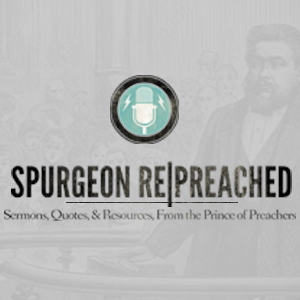
As the palace, and the forum, and the inn, have no room for Christ, and as the places of public resort have none, have you room for Christ?
“Well,” says one, “I have room for him, but I am not worthy that he should come to me.” Ah! I did not ask about worthiness; have you room for him? “Oh! but I feel it is a place not at all fit for Christ!” Nor was the manger a place fit for him, and yet there was he laid. “Oh! but I have been such a sinner; I feel as if my heart had been a den of beasts and devils!” Well, the manger had been a place where beasts had fed. Have you room for him? Never mind what the past has been; he can forget and forgive. It mattereth not what even the present state may be if thou mournest it. If thou hast but room for Christ he will come and be thy guest.
Do not say, I pray you, “I hope I shall have room for him”; the time is come that he shall be born; Mary cannot wait months and years. Oh! sinner, if thou hast room for him let him be born in thy soul today. “Today if ye will hear his voice, harden not your hearts, as in the provocation . . .” (Heb. 3:7–8). “Behold, now is the accepted time; behold, now is the day of salvation” (2 Cor. 6:2). Room for Jesus! Room for Jesus now!….
My Master wants room! Room for him! Room for him! I, his herald, cry aloud, Room for the Savior! Room! Here is my royal Master—have you room for him? Here is the Son of God made flesh—have you room for him? Here is he who can forgive all sin—have you room for him? Here is he who can take you up out of the horrible pit and out of the miry clay—have you room for him? Here is he who when he cometh in will never go out again, but abide with you forever to make your heart a heaven of joy and bliss for you—have you room for him?
’Tis all I ask. Your emptiness, your nothingness, your want of feeling, your want of goodness, your want of grace—all these will be but room for him. Have you room for him? Oh! Spirit of God, lead many to say, “Yes, my heart is ready.” Ah! then he will come and dwell with you.
~Charles Spurgeon~
Come Thou Long Expected Jesus (Wheaton, IL; Crossway Books; 2008) p. 63-64. Excerpted from a sermon titled: “No Room for Christ in the Inn” given on December 21, 1862.
Books by Charles Spurgeon
Biography of Charles Spurgeon
Other Spurgeon Quotes
Tags: Charles Spurgeon, Come Thou Long Expected Jesus











Wolfgang Musculus – Like the Waters of a Gushing Fountain
11 Mar[4] But God, being rich in mercy, because of the great love with which he loved us, [5] even when we were dead in our trespasses, made us alive together with Christ—by grace you have been saved – Eph. 2:4-5
The riches of God that Paul refers to when he says that God is rich in mercy are wonderful and divine. In this world a rich person uses his wealth for his own good and comfort. Even if he gives some of it away to help others, he uses most of it for his own benefit. In contrast, the kind of wealth in which God is rich in mercy is not intended for his benefit but for ours. Mercy cannot benefit him in any way because he is not miserable, unhappy or in trouble and therefore does not need it. All the wealth that makes him rich in mercy is used up outside himself and flows into us rather like the waters of a gushing fountain. Such riches reflect the divine nature, whose attribute is always to have mercy and to pardon. In the world nobody gets rich by showing pity, giving, contributing and donating, but only by obtaining things. That is what the riches of this world are like. Let us therefore leave them to the children of this world and let ourselves be rich in mercy, following the example of our Father in heaven.
~Wolfgang Musculus~
Reformation Commentary on Scripture: Galatians, Ephesians (Downers Grove, IL; IVP Academic; 2012) p. 281-282.
Other Musculus Quotes at the Old Guys
Tags: Reformation Commentary on Scripture, Wolfgang Musculus